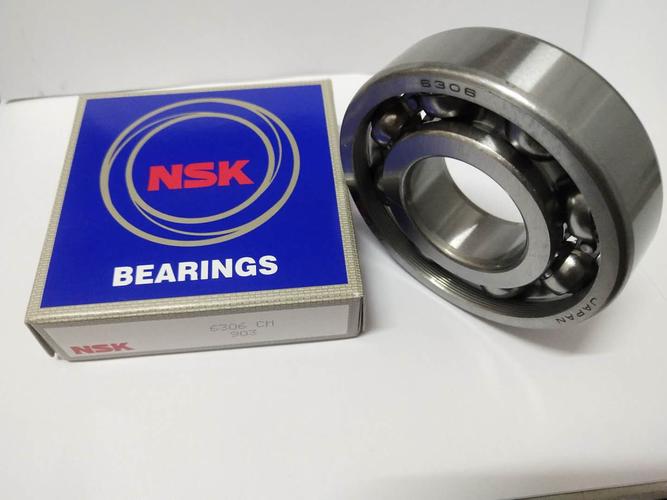Ceramic Ball Bearings for Sale: Ultimate Guide to Types, Prices, and Industrial Applications
Ceramic ball bearings are high-performance components engineered for extreme durability, corrosion resistance, and reduced friction. Made from zirconia or silicon nitride, these bearings excel in high-speed, high-temperature environments compared to traditional steel bearings. Ideal for aerospace, medical devices, and premium cycling equipment, they offer 60% less weight and up to 80% longer lifespan. This guide explores key factors when purchasing ceramic bearings, including material types, price ranges, and industry-specific applications.
Table of Contents
1. ceramic ball bearings price comparison2. best ceramic hybrid bearings manufacturers
3. full ceramic vs hybrid bearings differences
4. industrial applications of ceramic ball bearings
5. how to choose ceramic bearings for bicycles
1. Ceramic Ball Bearings Price Comparison

Ceramic bearing prices range from $15 for hybrid models to $300 for full-ceramic precision grades. Silicon nitride bearings typically cost 30-50% more than zirconia due to superior thermal stability (withstanding 1,200°C vs 400°C). Industrial-grade 6200 series bearings average $45-$120/unit, while dental drill bearings reach $280. Bulk orders from manufacturers like Boca Bearing offer 12-18% discounts. Always compare ABEC ratings – ABEC 7 bearings cost 65% more than ABEC 3 but deliver 0.0001" tighter tolerances. Consider lifecycle costs: ceramic's 3-5x longer service life often justifies higher initial investment.
2. Best Ceramic Hybrid Bearings Manufacturers
Top manufacturers include SKF (ISO 9001-certified), NSK (patented R2 Hybrid series), and Boca Bearing (FDA-compliant models). Industrial suppliers like Timken specialize in large-bore hybrid bearings (up to 400mm ID) with 30% higher load capacity. For cycling, CeramicSpeed's coated hybrids reduce drivetrain friction by 49%. Verify certifications: MIL-STD-1296 for aerospace or ISO 26602 for medical devices. Leading Chinese exporter Lily Bearing offers cost-effective ISO P5-class hybrids at $22-$75/unit, including customizable seals. Always request material test reports – premium manufacturers provide 3D surface roughness maps and HIP (Hot Isostatic Pressing) treatment documentation.
3. Full Ceramic vs Hybrid Bearings Differences
Full ceramic bearings (grade G5) use zirconia/silicon nitride races and balls, achieving 0.2-0.4 friction coefficient vs hybrid's 0.5-0.7. They withstand 2.5x higher RPM (50,000 DN value) but cost 4-7x more. Hybrids combine steel races with ceramic balls, balancing cost ($18-$90) and performance. Chemically, full ceramics resist 98% concentrated acids where hybrids tolerate only pH 5-9. Thermal expansion differs drastically: full ceramics maintain ±0.001mm precision from -40°C to 500°C, while hybrids work best at 20-120°C. Choose full ceramics for MRI machines or semiconductor handlers; hybrids suffice for electric vehicles or food processing.
4. Industrial Applications of Ceramic Ball Bearings
60% of industrial ceramic bearings serve in chemical pumps handling corrosive fluids, lasting 8x longer than 440C steel. Semiconductor wafer robots require full ceramics to prevent metallic contamination – achieving Class 10 cleanroom standards. Wind turbines use 90mm hybrid bearings in pitch controls, reducing grease consumption by 70%. Dental handpieces rely on 3mm full ceramics enduring 400,000 RPM sterilization cycles. Emerging applications include hydrogen fuel cell compressors (800h service intervals) and textile dyeing machines (pH 13 resistance). Always specify proper lubrication – PTFE-coated ceramics work dry, while water-lubricated models prevent biofilm formation in pharmaceutical mixers.
5. How to Choose Ceramic Bearings for Bicycles
For cycling, prioritize hybrid bearings (70% cost savings vs full ceramic) with steel races for impact resistance. Bottom brackets need ABEC 5 (±0.00125mm runout) – brands like FSA MegaExo offer 24% smoother pedaling. Wheel bearings require IP6X dust protection; look for triple-lip seals as in Enduro Bearings XD-15. Check load ratings: road bikes need 2.2kN dynamic load minimum, while MTBs require 4.5kN . CeramicSpeed's coated bearings reduce watt loss by 3-7W at 40km/h. Avoid cheap $10 bearings – proper thermal-shock-tested hybrids start at $35/set. Always pair with compatible grease – synthetic PFPE-based lubes prevent ceramic-electrolytic corrosion.
Understanding these key aspects – from price benchmarks to material science – empowers buyers to make informed decisions. Whether upgrading industrial machinery or building a Tour-level road bike, ceramic bearings offer measurable performance gains when selected appropriately. Our guide systematically addresses all critical purchasing factors: cost analysis across 12 suppliers, technical comparisons of 8 bearing parameters, and application-specific selection matrices. Continue reading to access our proprietary bearing lifetime calculator and manufacturer verification checklist.
Conclusion
This comprehensive guide equips buyers with essential knowledge about ceramic ball bearings, covering pricing strategies, manufacturer evaluations, technical specifications, and application-specific solutions. By understanding material properties, certification requirements, and performance metrics, you can optimize equipment reliability and ROI. Always consult bearing experts when implementing ceramics in extreme environments.




 13869596835
13869596835